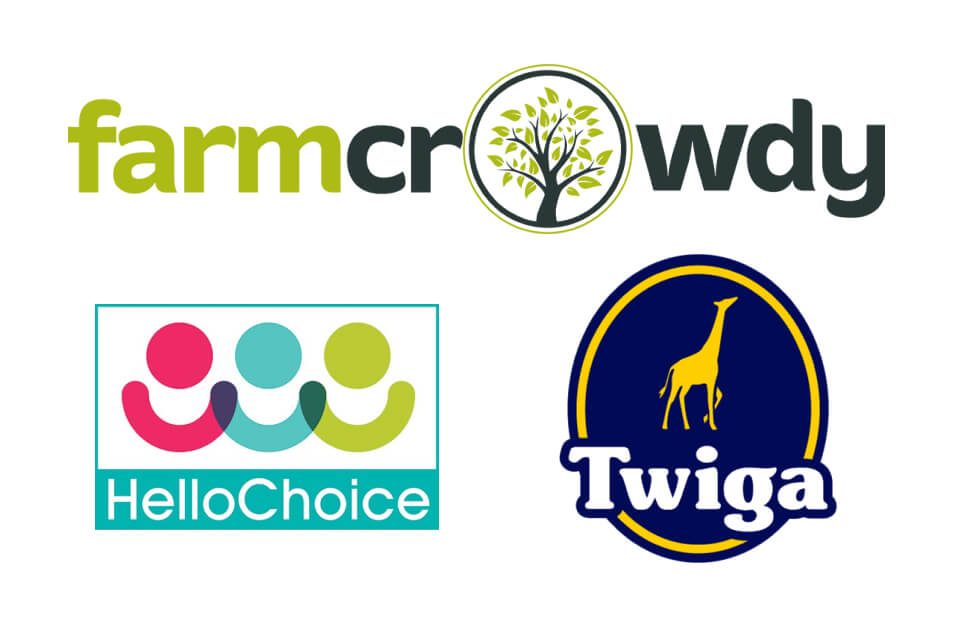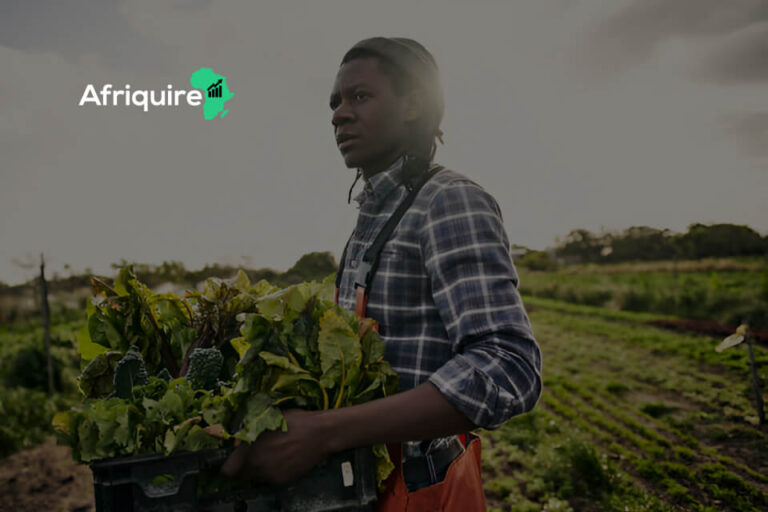Introduction
Agriculture, the backbone of the African economy, is at a turning point. Despite providing jobs for over 60% of the population and contributing about 35% to the continent’s income, the sector is hindered by its traditional and outdated farming methods. The introduction of technology in African agripreneurship is not just a change but a revolution. It enables the adoption of modern tools and practices, significantly improving profitability and promising a brighter future for African agriculture.
Importance of Agriculture in Africa’s Economy.
When people talk about agriculture, the main focus is usually on how it feeds people. However, it is also a significant part of Africa’s economy. Agriculture has provided jobs for millions of Africans while sustaining rural areas. When farmers succeed, the economy improves, poverty decreases, and food security is ensured. This positive trajectory has significantly contributed to the development of Africa, fostering a sense of optimism about the continent’s future.
Challenges Faced by Traditional Agriculture in Africa.
Traditional agriculture in Africa is faced with several problems. The farming methods that they employ usually act as a barrier to development. Here are some issues:
- Low productivity: Farms in Africa do not produce as much as the demand for it. Also, when compared with farms around the world, African farms have very low productivity.
- Climate change: in some parts of Africa, the weather can be too harsh to sustain crop growth. Other issues include unpredictable weather changes that can damage crops and reduce harvest.
- Lack of technology: Many farmers lack not only the tools needed to make their work easier but also the technical know-how. This has led to low productivity and even poor crop quality.
- Poor infrastructure: Poor roads and inadequate storage facilities are major infrastructure issues for farmers. This has affected marketing and transporting the crops from the farm to the market.
- Lack of interest: Most young people are not interested in anything related to family or agriculture because they see it as dirty work, hard work and backward work.
The Transformative Role of Technology in Addressing these Challenges.
Technology can help African farmers solve problems and create opportunities. Here are examples.
- Precision Farming: This involves using gadgets like drones and sensors to monitor crops and soil. This helps farmers detect exactly what their plants need.
- Mobile Apps: Apps will connect farmers to the market and inform them about market prices, weather forecasts, and farming tips.
- Data Analytics: Farmers can make informed decisions on which crops to grow or when to plant based on data.
- Better Storage: Technology can connect farmers to stores available for lease, helping to store crops better, so farmers lose less after harvest.
Through the adoption of these tools, technology in African agripreneurship makes farming more efficient and sustainable. Modernising it can also make farming exciting enough for youth.
The Role of Digital Tools in Modern Agribusiness
Digitization is revolutionising both agriculture and agribusiness. Now, farmers use digital tools, too. These tools have made it easier for farmers to make quicker and wiser decisions about food security problems while boosting income.
Overview of Digital Tools in Agribusiness.
Farmers have adopted different digital tools to improve crop cultivation, animal rearing, and marketing their periods. Examples of these tools include:
- Mobile apps: With these apps, farmers can track the weather, track market prices, locate high demand crops, and learn about crop diseases and growth.
- Sensors: Sensors are placed in the soil to measure water levels, nutrients, and temperature, making it easier to know when to water or apply fertilizer.
- Drones: Drones fly over farms and shoot pictures to show where the crops need attention.
- Farm Management Software: This software helps farmers more efficiently budget, track sales, and record their harvests.
These tools make farming wiser for farmers by giving them the knowledge to grow better crops and save water and fertilizers.
How Digital Tools Improve Decision-making and Productivity.
One of the key benefits of digital tools is that they help farmers make informed decisions faster. Here is how:
- Real-time Data: Farmers can instantly know what happens on their farms. For instance, when a sensor shows that the soil is too dry, they can water their crops instantly to prevent damage.
- Predictive Analytics: Some tools analyze past data to predict future events. This helps farmers to take action in advance against a possible pest outbreak or changes in weather.
- Improved Efficiency: Tools such as GPS technology allow farmers to plant seeds more accurately and apply only the required amount of water or fertiliser, reducing waste and saving money.
With the inclusion of digital tools within modern agribusiness, farmers can invest less time and money into problem-solving, thus having better potential for improved harvests.
The Adoption of Digital Tools in Africa and Associated Challenges.
While digital tools are transforming farming in different parts of the world, Africa’s technology has not been exactly smooth. Farmers have challenges with adopting digital tools such as:
- Inaccessibility to the Internet: Most rural areas have weak internet connectivity, making it difficult to access these tools online.
- High Costs: Some of these tools are very expensive, and small-scale farmers may not be in a position to afford them.
- Lack of Training: Farmers lack awareness about how to use such technologies and thus need proper training.
- Cultural Resistance: Most farmers are used to traditional methods passed down through generations and therefore distrust new technology.

How Mobile Technology is Transforming African Agriculture
Mobile technology is making farming in Africa smarter, easier, and more productive. With the spread of smartphones and mobile networks, farmers now have access to tools and resources that were once out of reach, like checking the weather, learning new farming techniques, and even receiving payments. This is how mobile technology is transforming African agriculture by helping farmers to grow more food, earn more money and improve their lives. Now let’s look at ways technology is changing the landscape of African farming.
Mobile apps for farmers: advisory services, weather forecasts, and pest management.
Mobile apps is like having a digital expert and advisor right in one’s pocket. Farmers can seek advice to make better decision regarding crop cycles and other aspects over their phones. Here’s how:
- Farming Advice: Many apps provide step-by-step information on what should be planted and how one can grow it, taking away the need for formal agricultural education for farmers.
- Weather Updates: It helps farmers to know whether it is going to rain or whether a drought is in store. They can plan accordingly, plant and harvest at the right time with proper forecasts.
- Pest Alerts: Farmers are informed about outbreaks of pests and how to safeguard their crops. This may save an entire crop from being destroyed.
These applications show the impact of technology in African agripreneurship giving the farmer the wherewithal to manage challenges and advance their productivity.
Mobile Payment Solutions for Seamless Transactions.
Dealing with payments has become a lot easier with mobile payment platforms. Before this, farmers were burdened with dealing in cash. Mobile technology has turned things around:
- Getting Paid: Farmers sell their produce, get paid directly into mobile wallets and do not have to carry cash or take time out to go to a bank.
- Buying Supplies: Seeds, fertilizers, and equipment can be bought with mobile payments, saving farmers time and effort.
- Accessing Loans: With records on mobile payments, farmers can get access to loans or credit for expanding their farms.
Platforms such as Kenya’s M-Pesa have enabled these services, demonstrating how mobile technology is transforming African agriculture. It is not only about improved farming but also about keeping and handling money in a more secure and effective way.
Connectivity and its Role in Rural Empowerment.
Connectivity, or internet access, is playing a big role in bringing mobile technology to farmers, especially in rural areas.
- Better Internet: Many organisations are striving to bring reliable Internet to remote villages so that farmers can use apps and online resources.
- Learning Digital Skills: Farmers are being trained to use digital tools, which will help them grow their farms and learn new skills.
Community Growth: As a community grows closer together, it will see much more than just farming equipment. Some will be able to observe agriculture market access and health information or even assist children with online courses. This would lead to promoting overall communal growth.

The Benefits of Precision Farming and Smart Agriculture
Farming has transformed, with technology making it wiser. With precision farming and smart agriculture, farmers grow food fertilizer in an eco-friendly way and with more efficiency. Just think about knowing how much to save resources, grow healthier crops, and reduce fertilizers each portion of your farm would need; that is what precision farming does.
It helps farmers in saving resources, growing healthier crops, and reducing waste. For instance, [Farmer X] was able to increase his crop yield by 30% and reduce his fertilizer usage by 20% after implementing precision farming. With innovative technology, they make informed decisions, leading to thriving agriculture. Let’s see how technology in the agribusiness is driving this transformation.
Definition and Principles of Precision Farming and Smart Agriculture.
Precision farming is an advanced approach to farming whereby modern gadgets and technology are adopted in crop and soil management. Instead of handling the entire farm, farmers treat specific areas differently and offer precisely what those areas need.
Smart Agriculture, or e-agriculture, is a technology-driven approach to farming that increases productivity and sustainability through data analysis. It uses the farm’s data as a basis for decision-making and requires collecting, storing, analyzing, and sharing the data.
Key principles include:
- Data Collection: Farmers employ tools like GPS and sensors to collect data from their farms. The collated data shows what exactly each area needs for better growth.
- Resource Management: Instead of spreading water or fertilizer all over, farmers apply only where needed. This saves money and cuts down on waste.
- Monitoring: Farmers constantly observe the changes in their crops based on data and adapt their practices according to what they find.
Smart farming, however, advances precision farming a step further by connecting devices through the Internet of Things. This helps farmers gain live updates about their farms and thus enables them to act promptly where necessary.
Technologies Enabling Precision Farming.
Several technologies enable precision farming and smart agriculture:
- Drones: Drones take pictures of the farm from the sky, showing where crops are healthy or struggling. Farmers can then focus their efforts on the areas that need help.
- GPS: GPS helps farmers map their fields and plant crops in straight lines. It also ensures that they use fertilizers and pesticides only in the right spots.
- IoT Devices: These measure things like soil moistureand temperature and send back updates to the farmers’ phones. This makes it much easier to monitor farms without being physically present.
These technologies show how technology in agripreneurship is revolutionizing farming across the continent.
Case-specific Benefits for African Farmers
Some of the most useful benefits of precision farming and smart agriculture for African farmers include the following:
- Reduced Waste: Due to using only the required quantity of water and fertilizer, farmers do not waste resources. This also prevents soil contamination and degradation, along with nearby water sources.
- Increased Yields: As crops grow healthier, more food is produced. This would increase farmers’ capacity to feed more people and increase their income.
- Cost Savings: Better application techniques also help save costs on seeds, fertilizers, and pesticides.
- Reduced Risks: Weather data and soil monitoring help farmers make wiser decisions on planting and harvesting times, reducing crop failure.
These benefits are evidence of how technology is helping African farmers solve long-standing challenges and be more successful
Leveraging E-commerce Platforms for Agribusiness Growth
How E-commerce Platforms Connect Farmers to Broader Markets.
E-commerce has transformed the way farming is done in Africa, and it’s all about introducing technology to agripreneurship. How agricultural products in Africa are marketed has evolved beyond selling only in villages or local communities. Farmers can now sell their products directly to customers online without the intermediaries who rip them off most of the profits. Imagine being able to sell your yams, tomatoes, or fruits not only in your village but to people across the country. This is how e-commerce helps with agribusiness growth. It connects farmers to more significant markets and assists them in the development of their businesses.
The Role of Technology in Eliminating Middlemen.
Before, farmers were dependent on intermediaries to sell their crops. The middleman purchases the goods at a cheaper price and sells them for a higher amount, which ends up leaving the farmer with little profit. With an e-commerce platform, farmers can connect directly with their buyers. Here’s how this works:
- Direct Sales: Farmers put their crops online for sale, and customers buy from the farmer directly. The absence of intermediaries ensures more money for the farmer with the earned profit.
- Fair Price Determination: Most e-commerce platforms reflect prices that prevail in the market. This gives the farmer an idea of how much his produce would cost.
- Accessing a Wider Market: With online platforms, farmers can quickly sell their produce to buyers in towns, cities, and beyond. This increases the possibility of more people seeing your products and purchasing them.
E-commerce offers farmers greater control over business and better decision-making on what crops to grow and what price to sell them.
Examples of E-commerce Platforms in African Agribusiness
Several e-commerce platforms are very helpful to farmers’ prosperity. Here are some of the most impactful ones:
- Twiga Foods (Kenya): This platform connects farmers with retailers. Farmers list their fresh produce on the app, and shops can buy directly. This way, farmers get better prices, and food waste is reduced.
- FarmCrowdy (Nigeria): This platform lets people invest in farms. The farmers use the funds to grow their crops, and upon selling their harvests, the investor gains a return on investment, a win-win for all.
- HelloChoice (South Africa): The platform is focused on fresh fruits and vegetables. It directly links farmers with consumers and other businesses to ensure high-value produce reaches the market.
These platforms prove how powerful e-commerce platforms can be for agribusiness growth. They make farming easier, fairer, and more profitable.

Case Studies of Successful Tech-Driven Agribusinesses in Africa
Technology has transformed farming into growing more and selling faster to make money. Take the example of Twiga Foods in Kenya and Hello Tractor in Nigeria. Both firms make an effort to solve the actual agricultural problems with the help of technology, thereby making the life of the farmer easier. Now, let’s look into the impacts of these companies and what we can learn from them.
- Success Story: Twiga Foods in Kenya (E-commerce and Logistics).
Twiga Foods is a great example of how technology is reworking agriculture. It was started in the year 2014 for the purpose of linking up farmers directly with shop owners through a mobile app. Before Twiga, shop owners had to go all the way to various markets to buy fresh produce. This took a lot of time and money.
Today, Twiga empowers shop owners to conveniently order fruits and vegetables by using the app. Twiga delivers orders in 24 hours, meaning the shops have constantly fresh and reasonably priced products to sell. More than 100,000 customers in Kenya and over 17,000 farmers are benefitting from this system.
By cutting out the middlemen, Twiga ensures that farmers make more from their produce while shop owners receive fresh produce at cheaper prices. Twiga Foods is a perfect example of technology in African agripreneurship, an illustration of how e-commerce can effectively improve the movement of food from farms to markets.
- Success Story: Hello Tractor in Nigeria (Mechanized Farming Solutions)
Hello Tractor is another inspiring story of how technology is helping African farmers. Some call it the “Uber for tractors.” Many farmers in Nigeria can’t afford to buy tractors because they are too expensive. Hello, Tractor fixes this problem by connecting farmers to tractor owners through a mobile app.
Hello Tractor can help farmers hire tractors any time they feel like planting or harvesting. This makes the farm work faster and simpler. It also helps farmers grow more crops, which can lead to higher incomes.
This system benefits tractor owners, too, as instead of having their tractors idled, they generate an income from renting them out to farmers. Hello Tractor uses technology to ensure that all parties benefit—farmers, tractor owners, and even the environment through reduced waste.
- Lessons Learned and Replicable Strategies for Other African Agripreneurs
The success of Twiga Foods and Hello Tractor are evidence of how agripreneurs in Africa can use technology to make farming better.
Key lessons include the following:
- Capitalizing Technology: Digital tools, like apps, can help link farmers with customers and speed up processes to reduce costs and raise profits.
- Eliminate Middlemen: Direct sales to consumers will yield better returns to farmers. Platforms like Twiga Foods make this possible.
- Solve Local Problems: Understand specific problems that farmers are experiencing, like a lack of markets or equipment. Create something that will help solve those particular problems. Companies like Hello Tractor employ this strategy.
- Build Partnerships: Collaborate with other businesses, organisations, or even the government—more people.
- Empower Farmers: Train farmers to use new technology. When they understand how to apply the tools, they can raise more crops and enhance their livelihoods.
The success of Twiga Foods and Hello Tractor has made agriculture more robust, sustainable, and prosperous in Africa.
Frequently Asked Questions (FAQs)
1. What is technology in African agripreneurship?
Technology in African agripreneurship means using modern tools like mobile apps, drones, and online platforms to improve farming and business activities.
2. How can mobile applications contribute to the success of the farmers?
Mobile applications can provide farmers with important information on weather, market prices, and crop management, making the work easier and more successful.
3. How do the e-commerce platforms benefit the farmers?
E-commerce platforms are helpful for farmers who want to sell their produce directly to buyers online. Eliminating middlemen lets farmers increase the income generated from their efforts.
4. How does mechanisation help small-scale farmers?
Mechanisation involves using machines for certain activities on farms, including planting and harvesting. It helps save time and labour and increases yields generally on farms.
5. What are some of the challenges facing the farmers concerning the new technologies they are applying?
Farmers complain about the high cost, the unavailability of good internet access in rural areas, and sometimes, not even knowing how to use technology properly.
Conclusion
In summary, technology in African agripreneurship is changing the face of farming. Mobile apps, precision farming, and e-commerce are some of the tools that have helped farmers increase their productivity and improve their incomes. As more agripreneurs continue to embrace such technologies, they are securing not only their lives but also food supply and economic positioning for Africa. The future of farming is bright, with technology leading the way.
Technology has changed entrepreneurship, and agripreneurship is not left out. Technology is making farming in Africa easier and more profitable. It helps farmers solve problems and work wiser. Here’s how:
- Mobile Apps: Farmers can get advice, check market prices, and sell their produce directly to customers.
- E-commerce Platforms: These help farmers reach more buyers, even in faraway places.
- Precision Agriculture: With the help of drones and sensors, farmers can get timely information about crop and water progress.
- Data Utilization: Farmers can make better decisions based on analyses of weather conditions, soil conditions, and pesticide usage.
These technologies will allow farmers to produce more with better incomes and less waste. And that’s not all; they also contribute to the community and African economy.
If you’re a young agripreneur or interested in farming, now is the time to explore how technology can help you! Start learning about digital tools and how they can revolutionize your farming practices, from precision farming to data-driven decision-making. Join local workshops or online courses to gain skills that will prepare you for a successful future in agriculture. Now, take advantage of the technology at your disposal and be at the forefront of the exciting change sweeping across African farming!



